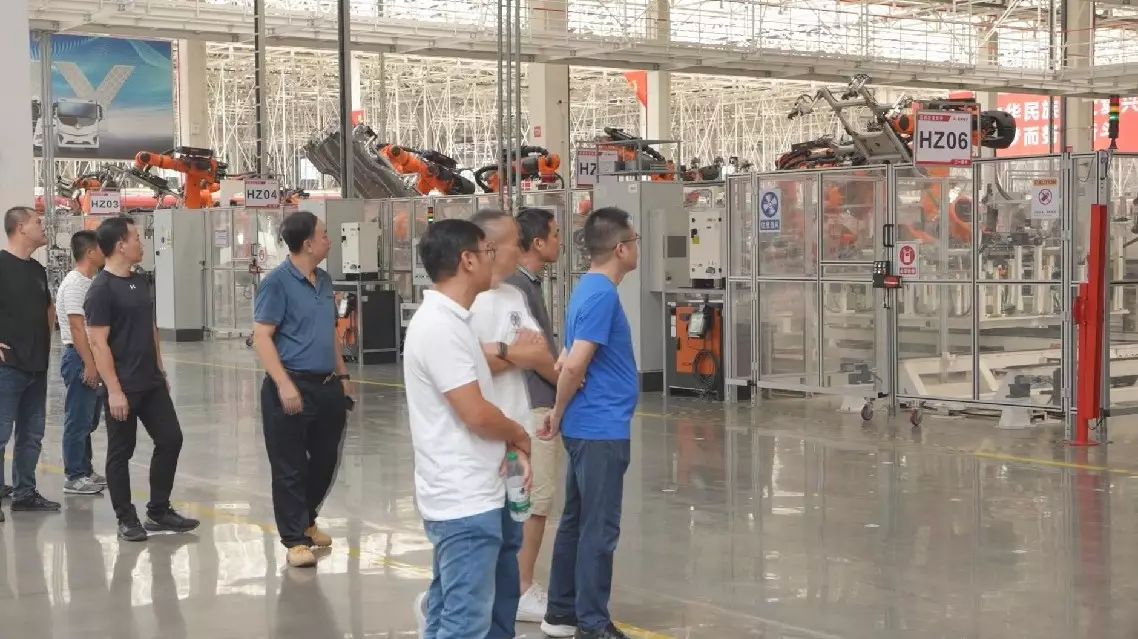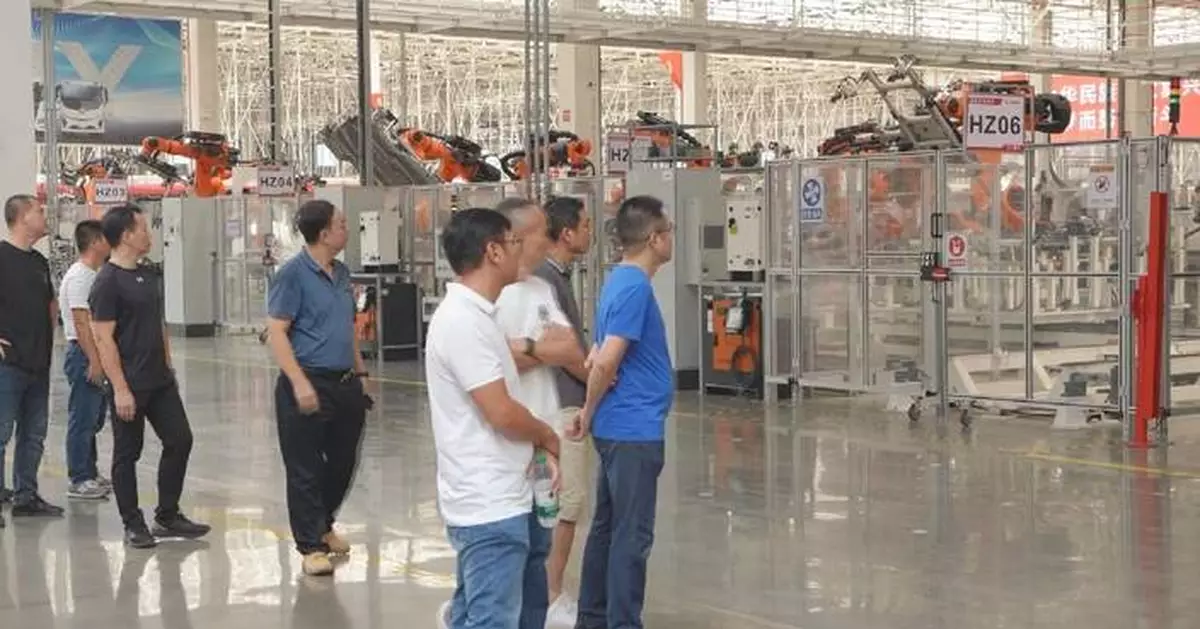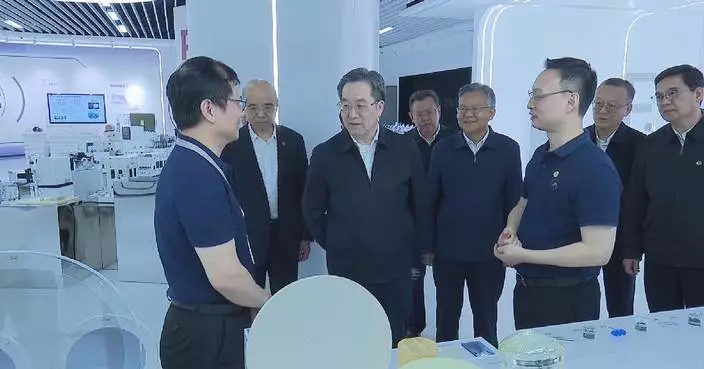Changsha, the capital of central China's Hunan Province, is seeing a boom in its distinctive industrial tourism as the city transforms into the country's leading hub for advanced manufacturing.
In May, Changsha launched eight new themed routes for the public to boost industrial tourism across the city, drawing in travelers interested in witnessing the wonders of modern innovation.
Yuanda Science and Technology Park, the headquarters of Yuanda Technology Group, is China's first science and technology park named after an enterprise. Here, visitors can explore Yuanda's product exhibition halls, research and development centers, and other areas to learn about the company’s culture of innovation and environmental protection while enjoying the beautiful scenery and holiday atmosphere.
"Yuanda Science Park Industrial Tourism began in 2016. Visitors can get direct contact with advanced inventions including our high-tech central air conditioner, intelligent detection platform and cutting-edge construction materials. Many of our visitors are teenagers and students," said Tang Jianguo, head of the study travel department at the enterprise.
In the industrial park, interesting science education courses also enhance visitors' awareness of the importance of technology for clean air. The park's greenery is impressive, with nearly 70 percent of the land used as ecological reserves and organic farms, making it feel more like a park than a traditional factory.
According to Tang, the industrial park features numerous fruit trees, plants, and crops, as well as rare poultry, migratory birds, and other animals. All employees and visitors can enjoy exclusively organic food.
The modern, high-tech buildings here also impress visitors. A young student shared his excitement as he was about to visit a towering 57-story skyscraper.
"I was really impressed by the park, especially this 57-story building that only took 19 days to build. So amazing," he said.
So far, the industrial park has received more than 100,000 visitors. Tang said that the staff hope tourists, especially young students, will gain an understanding of their industrial culture and have a seed of science planted in their minds.
In another industrial park in Changsha, owned by Chinese machinery giant Sany Group, tourists can see the manufacturing process of a super-intelligent heavy truck. The production line features dancing robotic arms that tell the story of the group's rise to become a global leading manufacturer of concrete machinery.
"We have seen 30,000 visitors in our park so far. In addition to factory visits, we also have projects like creative programming and 5G smart heavy truck unmanned driving. You can really feel the modernization of manufacturing and China's industrial achievements," said Cao Yan, general manager of the industrial tourism project at Sany Group.
In addition to these modern industrial sites, Changsha offers alternative destinations for a peek into the city's past. Meitanba Town, named after coal, had a rich mining history spanning the past hundred years and is now transformed into a heritage park. The park preserves old winch houses, chimneys, and coal mining tools, reminding visitors of the past and offering insights into Changsha's mining history and industrial evolution.
"What we can see here are the tools and equipment used in coal mining before, as well as some mining scenes that we have restored. Our county used to have four state-owned coal mines, which were closed in 2014 to adapt to the development of society. Now, our park is used to commemorate the efforts of the older generation and the 'Black Gold' era. Now, this is a popular spot on social media because of its retro style. It is also a film set where many industrial-themed TV series are shot," said Zhu Shuangzhi, operating manager of the Meitanba Coal Heritage Park.
Currently, Changsha offers themed industrial routes for the public covering areas like manufacturing, cultural heritage, food industries, and aerospace. Beyond ticket sales, this tourism trend provides long-term benefits to industry by attracting potential consumers and cultivating future talents.

Distinctive industrial tourism booms in China's manufacturing hub Changsha





















































